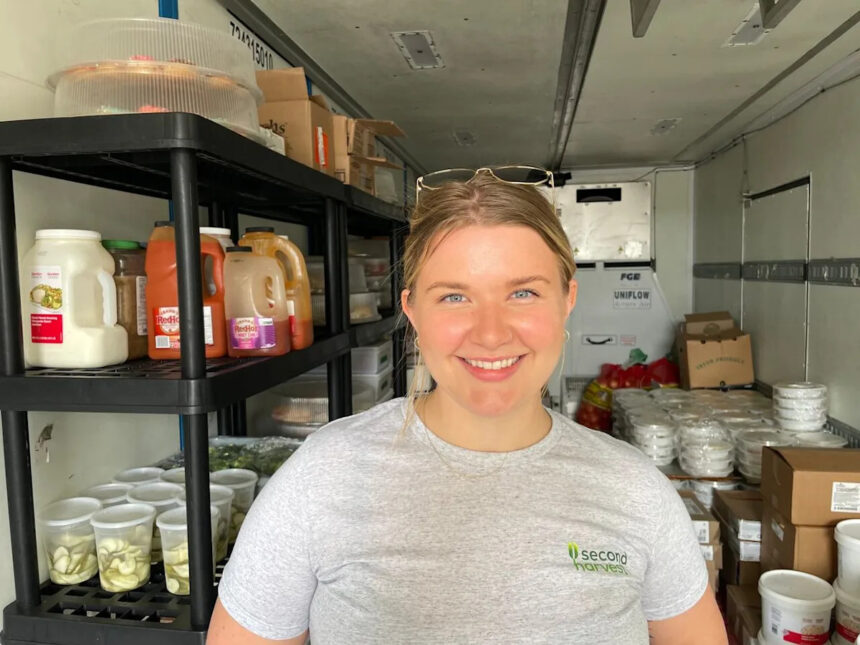When the music stopped at the Cavendish Beach Music Festival last month, something unexpected happened behind the scenes. Instead of discarding unsold food, organizers made a call that would benefit hungry Islanders across Prince Edward Island.
“We had quite a bit left over,” explains Jeff Squires, president of Whitecap Entertainment, the company behind Atlantic Canada’s largest country music festival. “These are quality products that simply didn’t sell because of weather or timing, and there was no question in our minds that it should go to people who could use it.”
The donation included approximately 3,000 pounds of food – everything from hamburgers and hot dogs to chicken fingers and buns. Festival organizers worked with local non-profit organizations to distribute these items to Islanders facing food insecurity.
For the Salvation Army in Charlottetown, this unexpected bounty couldn’t have come at a better time. Captain Jamie Locke says summer donations typically drop while need remains high.
“Summer months can be particularly challenging for food banks and meal programs,” Locke explained during a phone interview. “People are traveling, on vacation, and donations naturally decline. But hunger doesn’t take a holiday.”
The Bedford MacDonald House, a men’s shelter in Charlottetown, received a significant portion of the donation. Mike Redmond, the shelter’s coordinator, notes that such contributions help stretch limited resources.
“When you’re operating on a tight budget, a donation like this means we can redirect funds to other critical needs,” Redmond says. “Our residents enjoyed fresh burgers this week instead of the usual fare, and that boost to morale matters just as much as the nutritional value.”
The ripple effect of this donation extends beyond immediate meals. According to Food Banks Canada, Prince Edward Island saw a 30% increase in food bank usage over the past year, reflecting the growing challenge of food insecurity across the province.
Statistics Canada data shows that grocery prices in Atlantic Canada have risen by nearly 9% since last year, outpacing wage increases for many Island families. This economic pressure makes food donations increasingly valuable for community organizations.
What makes this initiative particularly significant is that it represents a shift in how large events handle surplus. In previous years, perfectly good food often ended up in landfills after festivals concluded.
“There’s a growing awareness among event organizers about food waste,” explains Sarah Martin-Qadri, a sustainable events consultant based in Summerside. “We’re seeing more festivals across Canada implement recovery programs, but the Cavendish donation stands out for its scale and coordination.”
The donation required careful handling to ensure food safety. Island EMS provided refrigerated vehicles to transport perishable items, while volunteers from several organizations helped sort and distribute the food.
Kevin Porter, a longtime festival attendee who volunteered with the distribution effort, was impressed by the behind-the-scenes coordination.
“I’ve been coming to Cavendish for years as a fan, but seeing this side of things gave me a new appreciation for the festival,” Porter shared. “There’s something special about knowing your ticket helped create not just a great weekend of music, but also meals for folks who really need them.”
The festival’s contribution also helped non-profits deal with the seasonal challenges of summer operations. Many of these organizations see volunteer numbers drop during July and August when regular helpers take vacations.
“Having pre-made food items reduces preparation time when we’re short-staffed,” explains Janice Stewart, who runs a community kitchen in Montague. “We served festival hamburgers at our Wednesday lunch program, and our guests were thrilled with the quality. It felt like bringing a piece of the festival experience to people who might never get to attend.”
For Island food security advocates, the hope is that this donation becomes a regular practice for events across the province. The PEI Food Security Network estimates that roughly 14% of Island households experience some level of food insecurity, a number that has grown since the pandemic.
Tourism Minister Cory Deagle praised the initiative, noting that it aligns with the province’s sustainability goals. “This is the kind of responsible tourism we want to encourage,” Deagle stated in a press release. “Events that not only boost our economy but also give back to Island communities.”
Festival organizers say they plan to make food recovery a permanent part of their operation. They’re currently developing protocols to streamline the process for next year’s event, scheduled for July 2024.
“We’ve always seen ourselves as more than just a music festival,” Squires reflects. “We’re part of the Island community, and this is one way we can give back to the place we call home.”
As summer festival season continues across the province, other event organizers are taking notice. Several have reached out to Whitecap Entertainment for advice on implementing similar programs.
For the Islanders enjoying meals made possible by this donation, the festival’s impact extends far beyond its three days of country music. It’s a reminder that sometimes the most meaningful notes are the ones that continue to resonate long after the stage lights dim.






